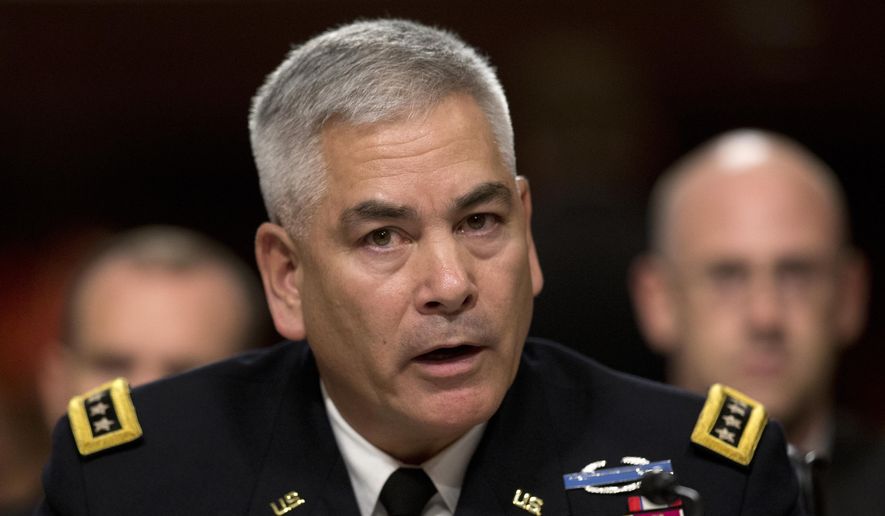WASHINGTON (AP) - Amid growing concern about setbacks in Afghanistan, the Obama administration has chosen Lt. Gen. John W. “Mick” Nicholson, Jr., a veteran of multiple Afghan war deployments, as the next top American commander in Kabul, officials said Wednesday.
If his selection is confirmed by the Senate, Nicholson would succeed Gen. John F. Campbell, who is expected to retire.
In announcing the Nicholson nomination, Pentagon press secretary Peter Cook quoted Defense Secretary Ash Carter as expressing gratitude for Campbell’s contributions, saying he has helped put Afghanistan on a “better path.”
“Much of the credit for that progress rests with General Campbell,” he quoted Carter as saying. “For nearly 18 months General Campbell has given his all to the mission as our top commander in Afghanistan, and his personal sacrifices on behalf of his troops and the Afghan people will be remembered by us all.”
Nicholson, a 1982 graduate of the U.S. Military Academy at West Point and a career infantry officer, is currently commander of NATO’s Allied Land Command, headquartered at Izmir, Turkey. Among numerous tours of duty in Afghanistan starting in 2006, he served as deputy chief of staff of operations for the international military command and for U.S. forces in 2010. Before that he spent 14 months as director of the Pentagon’s Afghanistan-Pakistan coordination cell.
Carter said he has confidence in Nicholson, calling him “an accomplished soldier with extensive command experience both in Afghanistan and around the world.”
Campbell has been the top U.S. commander in Afghanistan since August 2014 and was due to be replaced. In recent weeks he was offered, but chose not to accept, command of U.S. Africa Command. Some thought he would have been a more natural fit to lead U.S. Central Command, which oversees operations in the Middle East, but Defense Secretary Ash Carter announced last week that Gen. Joseph Votel is President Barack Obama’s choice for that job. Votel currently heads U.S. Special Operations Command.
Campbell, a former vice chief of staff of the Army and an Iraq war veteran, is expected to complete his tour shortly, possibly around March 1. The House Armed Services Committee said this week that Campbell will testify on the situation in Afghanistan next Tuesday.
The coming change in command of U.S. and allied forces in Afghanistan coincides with concern about a Taliban comeback, dysfunction in the Afghan government and shortcomings in U.S.-trained Afghan security forces after 14 years of war.
There are about 9,800 U.S. troops in Afghanistan. At Campbell’s urging, Obama decided last October to abandon his plan to reduce troop levels to near zero by the end of 2016. Instead he said they would shrink to 5,500 by the end of the year. Some suggest that Obama may be asked this year to maintain the current level of 9,800 troops until he leaves office in January 2017.
It was during Campbell’s tenure in Kabul that the U.S.-Afghan relationship took a turn for the better, largely because of the election of Ashraf Ghani as president. Ghani took office in September 2014 and Campbell has said publicly that the new president’s approach to the war effort and that of his predecessor, Hamid Karzai, were like “night and day,” from the U.S. point of view. It was partly on that basis that Campbell recommended the U.S. not wind down its role as quickly as Obama once wanted.




Please read our comment policy before commenting.